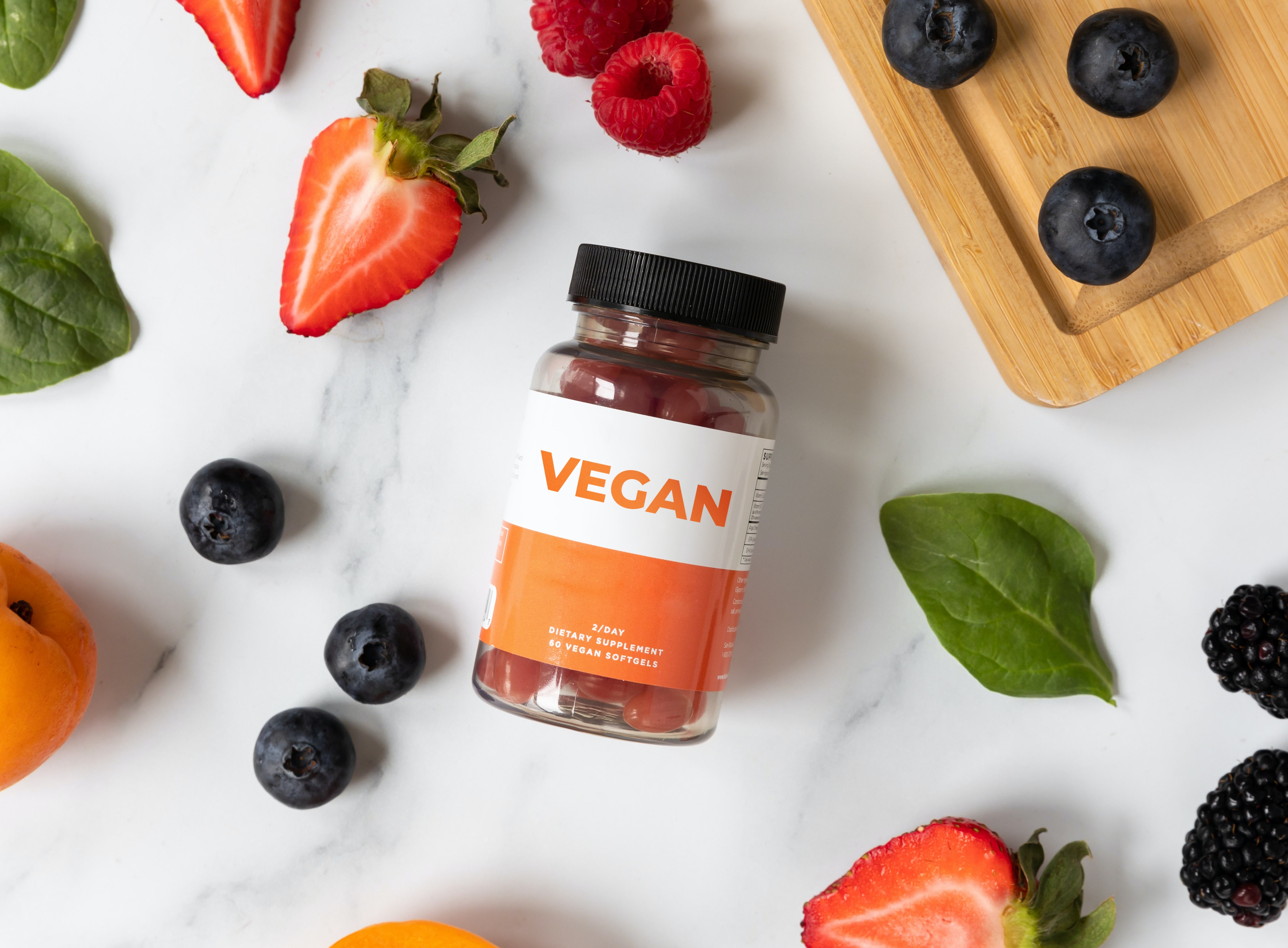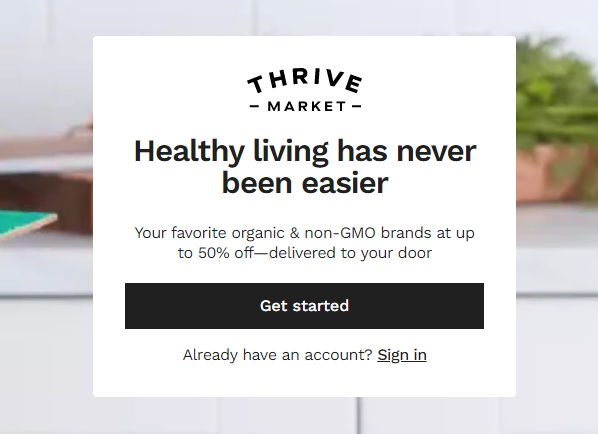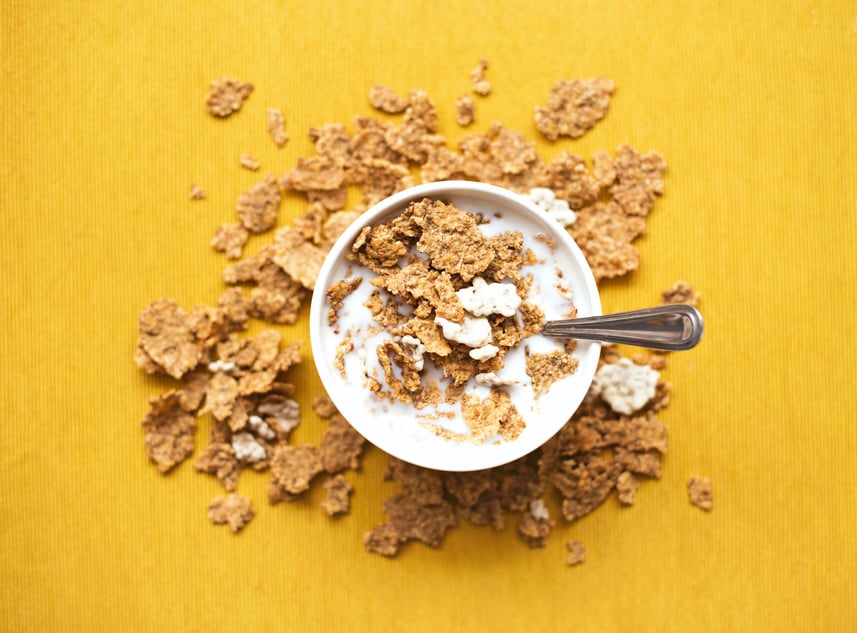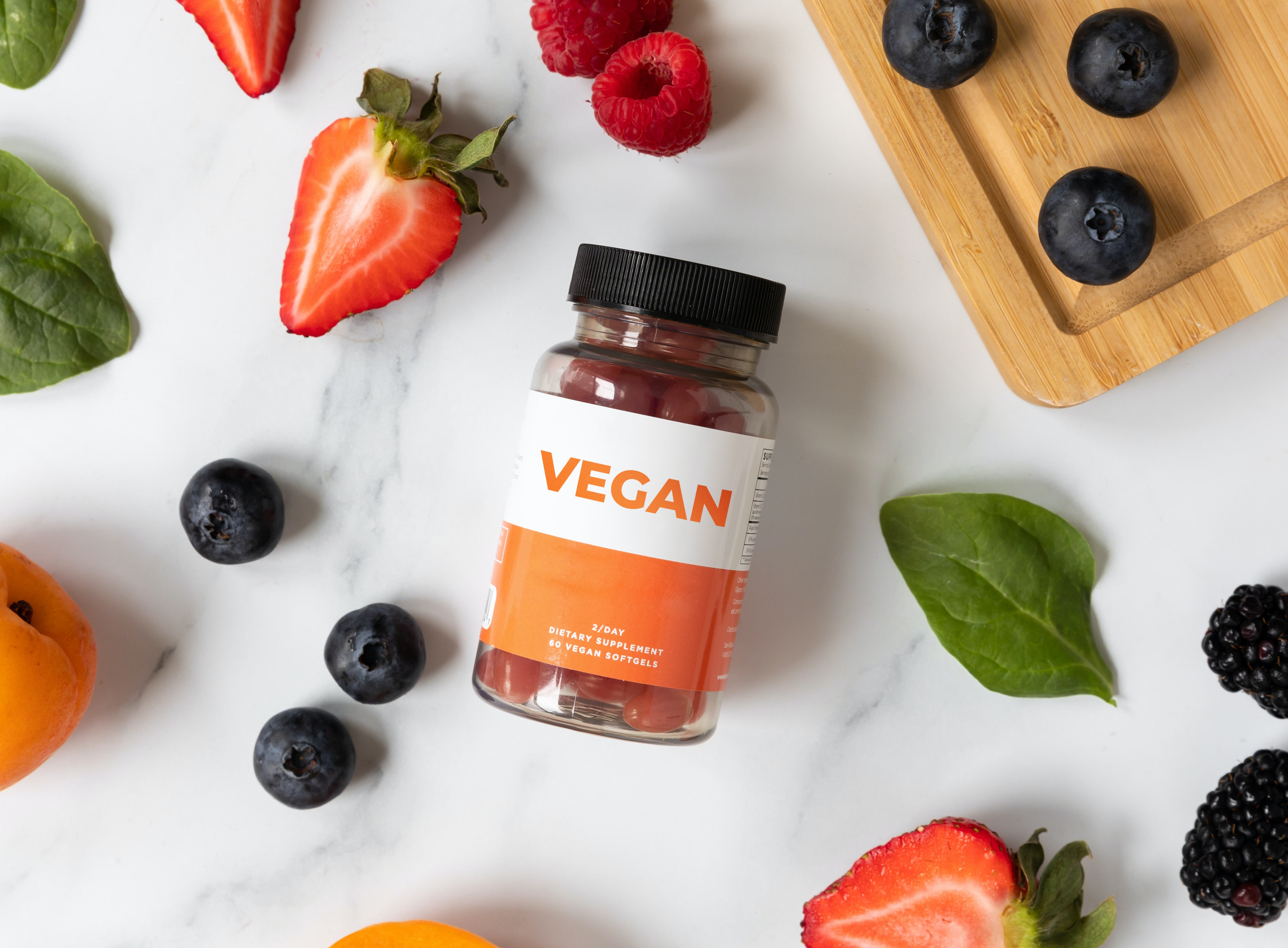A vegan diet has an abundant list of health benefits; however, it neglects a key micronutrient found in animal products: B-12. Without it, you may become at risk of anemia and nervous system damage—both of which have serious health implications. Therefore, as vegans and vegetarians, it's important to be aware of alternative B-12 sources.

What is Vitamin B-12?
Vitamin B-12 is an important water-soluble vitamin required for red blood cell formation, neurological function, and DNA synthesis. It's naturally found in animal products, including fish, meat, eggs, poultry, and dairy products. Vitamin B-12 is not naturally found in plant-based foods; however, a wide variety of plant-based foods are fortified with vitamin B-12.
How Much B-12 Do I Need?
According to the National Institutes of Health, the recommended B-12 vitamin intake for adults is 2.4 micrograms (mcg). Pregnant women and women who are breastfeeding should consume at least 2.8 mcg.
Signs you may be experiencing B-12 deficiency include:
- Constant fatigue
- Weakness
- Loss of appetite
- Constipation
- Unexplained weight loss
- Numbness and tingling sensations
- Poor balance and memory
If symptoms go untreated, permanent nerve damage or anemia may result. Furthermore, if you have a pre-existing condition, you may be at increased risk of B-12 deficiency because of your body's inability to fully absorb micronutrients.
What Are the Best B12 Sources?
The best, most reliable way to get an adequate amount of B-12 is through supplementation. It is recommended that all vegans take 250 mcg per day of B-12 supplement to avoid the risk of deficiency. However, there are plant-based foods that are fortified with B-12 if you want to avoid supplementation.
✅ Fortified Nutritional Yeast
5 mcg. per tablespoon
Nutritional yeast is such an easy way to get B-12. Its subtle cheesy and nutty flavor makes it perfect for sprinkling on just about every meal throughout the day.
✅ Fortified Products
Breakfast Cereal
Up to 20 mcg. per 100g. serving
Most breakfast cereals are fortified with B-12, some more than others. Therefore, when buying cereals, be sure to read the nutritional content. Cereals can also contain a high amount of sugar, so just because a cereal may contain a high amount of B-12 does not necessarily mean it is the healthiest!
Dairy-Free Milk
Dairy-free milk is an excellent way to get B-12 because of its diverse use. If B-12 contributes to about 20% or more of the daily value, it is considered an excellent source, while 10-20% is considered a good source. Some of our favorite sources are:
- Milkadamia products - made from macadamia nuts, a nutrient-packed superfood, their macadamia nut-based milks contain 50% of B-12 daily value per serving.
- Good Karma Flaxmilk - made from flax seeds, their milk contains 25% of B-12 daily value, in addition to being an excellent source of protein and omega-3s.
- Silk products - Silk makes several dairy-free milk products, each with varying amounts of B-12.
When in doubt, read the labels. Not all plant-based milks are fortified with B-12!
✅ Tempeh
Up to 4 mcg. per 100g. serving
Tempeh is made from soybeans; however, it's the bacteria produced during the fermentation process that contains B-12, not the soybeans. It's not the most reliable source of B-12, so it's best paired with other sources.
Chlorella and spirulina are incredible nutrient-rich superfoods. The recommended intake of both is about 3-5 grams per day. You can take them as a capsule or add them to smoothies, baked goods, and other dishes. Both contain a small amount of B-12 and should be paired with other sources to meet the daily recommended intake.
✅ Seaweed
Seaweed is a highly nutritious food. To get the most nutritional value out of seaweed, evidence suggests eating it raw. When it is cooked or dried, its levels of B-12 decrease.
✅ Cremini mushrooms
Not all mushrooms contain B-12; however, similar to how the bacteria produced in tempeh's fermentation process contains B-12, the bacteria on cremini mushrooms contain a small amount of B-12.
No source is effective enough to provide adequate levels of B-12 on its own. Combine the different sources and consider taking a supplement. Consult with your doctor about whether a supplement may be your best option.
Help support Assuaged and SAVE on great vegan products with Thrive!
Let us know how you include B-12 in your diet! If you want to share a recipe of your own, feel free to post it on our ➡️ Share A Recipe ⬅️ page!

References:
Healthline. (2017). Why is Nutritional Yeast Good For You
Medical News Today. (2020). Vegetarian and Vegan Sources of B-12


















